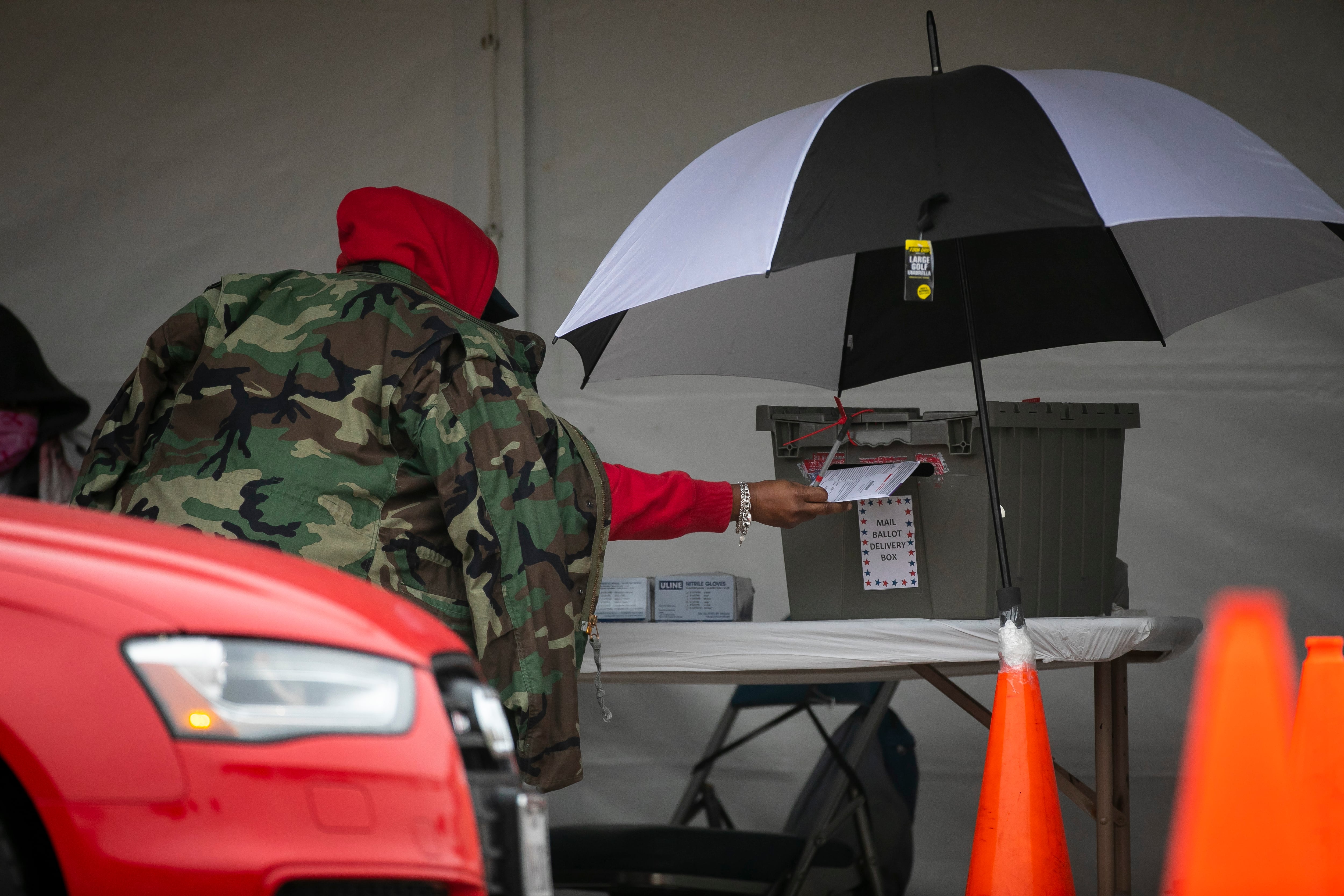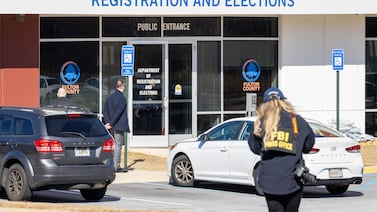Votebeat is a nonprofit news organization reporting on voting access and election administration across the U.S. Sign up for Votebeat Texas’ free newsletter here.
This story was first published by The Texas Tribune, a nonprofit, nonpartisan media organization that informs Texans — and engages with them — about public policy, politics, government and statewide issues.
A federal appeals court has upheld Texas’ requirement that potential voters must list their identification information in their application for a mail-in ballot.
In Texas, voting by mail is only available for certain groups of people, including elderly voters and people with disabilities. Under Senate Bill 1 passed in 2021, voters must also include an ID number — such as a driver’s license number — on both the vote-by-mail applications and the mail-in ballots and both numbers need to match. Opponents of the law said this provision discriminated against voters with disabilities and that it would not meaningfully cut down on voter fraud.
In a Monday ruling, a panel from the U.S. Fifth Circuit Court of Appeals found that the updated requirement does not violate federal law. It also reversed a lower court’s decision.
“We have no difficulty concluding that this ID number requirement fully complies with a provision of federal law known by the parties as the materiality provision of the 1964 Civil Rights Act,” wrote Judge James Ho, a Trump appointee.
Judge Patrick Higginbotham and Judge Don Willett, who were appointed under the Reagan and Trump administrations, respectively, joined Ho’s ruling.
Texas Attorney General Ken Paxton lauded the ruling Tuesday.
“Voter ID is one of the most crucial tools in the battle against election fraud, and I’m pleased to see the court affirm our fundamental right to defend the integrity of our democratic process,” he said in a news release.
Prior to this decision, the U.S. District Court for the Western District of Texas had ruled in 2023 that the requirements infringed on the Civil Rights Act. Though later that year, Paxton’s office was able to stop that decision from going into effect.
These voter ID requirements were also the target of legal challenges from several civil rights groups, along with other provisions of SB 1.
Groups that were part of this case — including the League of Women Voters of Texas, OCA-Greater Houston and Rev Up Texas — didn’t immediately respond to comment requests from The Texas Tribune Tuesday.
A recent study from the Brennan Center for Justice at NYU Law School found that the state’s requirements pushed many voters whose mail ballots or vote-by-mail applications were rejected during the 2022 primary to change their method — or not vote at all.





